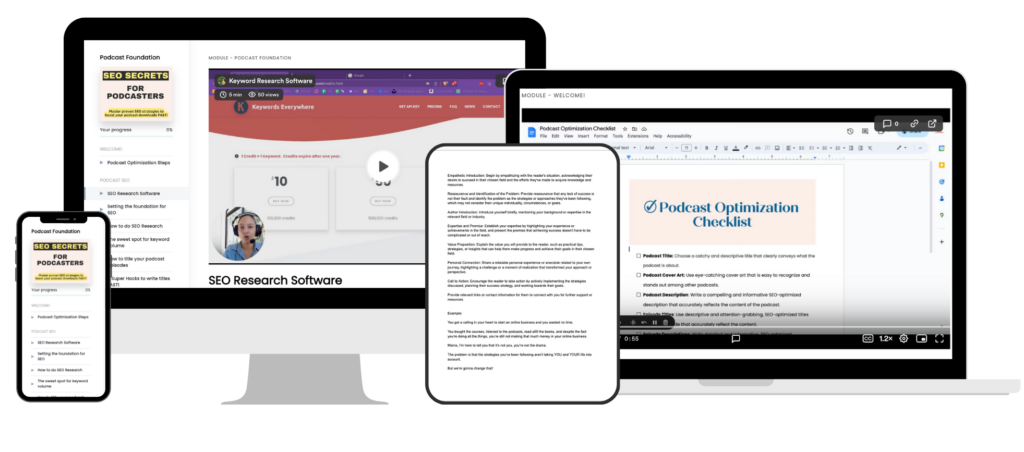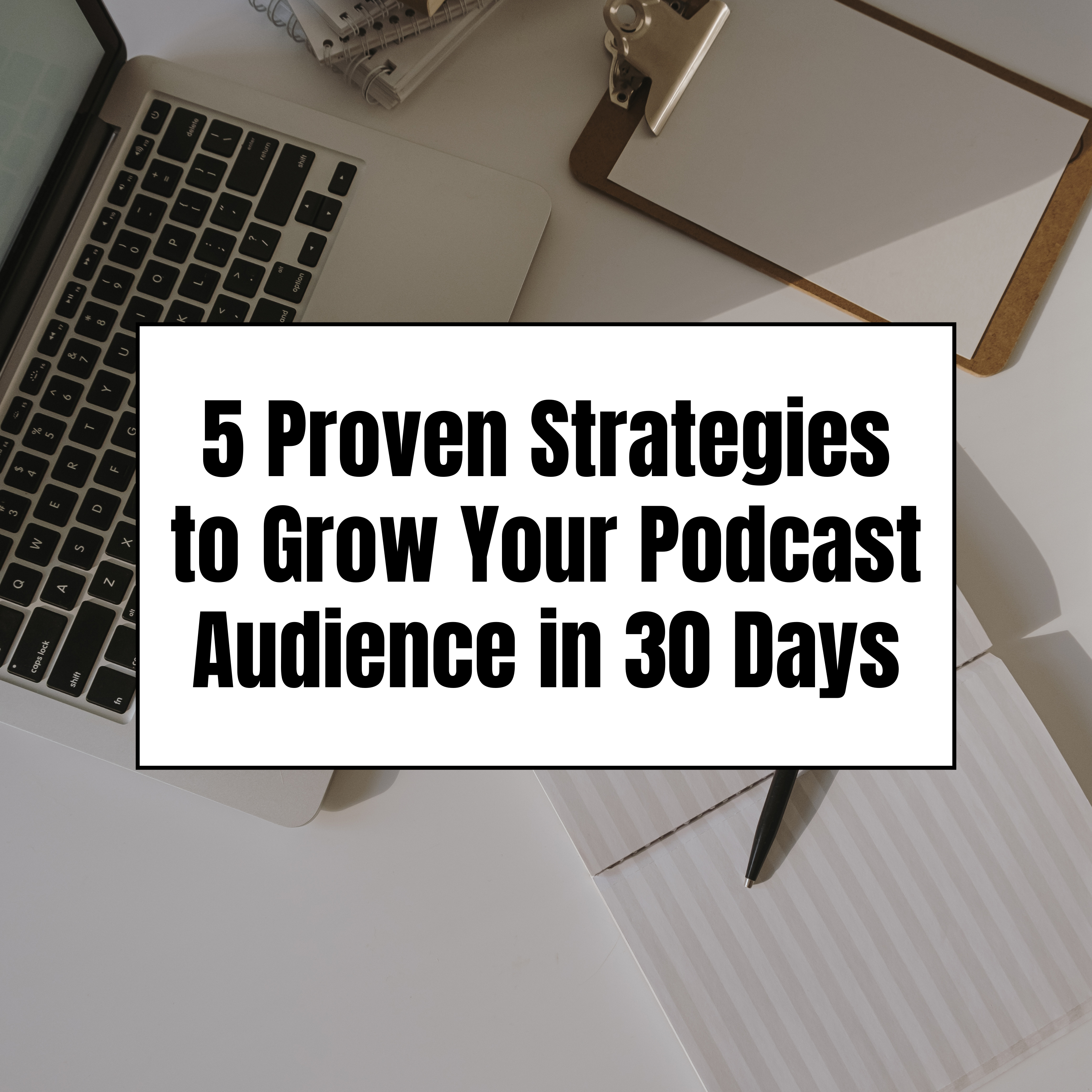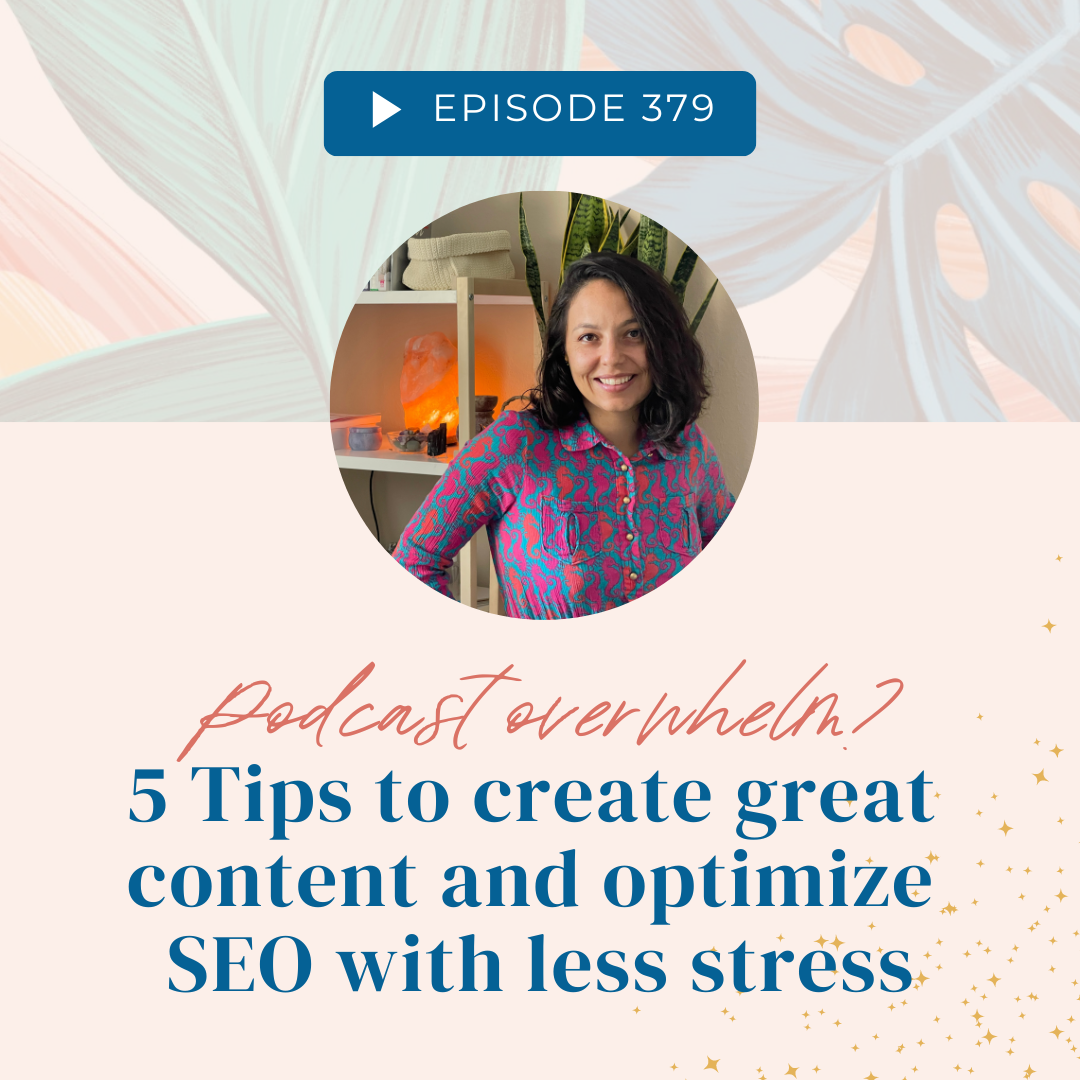December 14, 2023
5 Podcast shownotes mistakes that are killing your podcast growth
Hi there, I'm Juliana!
I'm a top 0.5% podcaster, Podcast Launch & Growth Strategist at Juliana Barbati Consulting.
I focus on turning your expertise into a highly-ranked podcast that engages and grows your audience effectively.
My guidance has led numerous clients to achieve “must-listen” acclaim in the podcasting world.
As a leading podcast marketing company, Juliana Barbati Consulting prides itself on delivering comprehensive solutions tailored to the unique needs of each thought leader and their podcast.
Latest Blogs
If there’s one thing that I observe again and again in this podcasting space is that people tend to obsess over the things that don’t necessarily help their podcast grow.
Case in point, I see this all the time when people spend hours, if not days, obsessing over which microphone to buy (while sound is an important aspect of your podcast, it’s not the end all be all).
One of the biggest ways that I see people make a mistake is when it comes to their show notes.
They are just totally ignoring it and not paying attention to this very important piece of the puzzle.
So today we’re going to talk about that.
Let’s dig deeper:
In the podcasting scene, I’ve noticed something happening over and over: people obsess over small details, like spending forever choosing a microphone. Sure, good sound is key, but it’s not the only thing. If your podcast is hard to find, even top-notch sound quality won’t cut it. A big thing many podcasters overlook? Show notes. They’re really this hidden gem for growing your podcast, but sadly, they often get ignored.
About show notes, here’s the scoop: right now, they don’t help you climb up the ranks in Apple Podcasts. Stuffing them with keywords won’t boost your search ranking there. But I have a strong hunch that Apple will start paying attention to those keywords in your show notes soon. So it makes sense to get your notes in shape now. And don’t just focus on Apple. I always make sure my show notes are on point for all search engines. That way, when someone Googles something related, my podcast shows up. It’s about making every bit of your podcast findable, not just on Apple, but across the web.
Now, let’s talk about common mistakes that people make when it comes to shownotes and what to do instead.
Mistake #1 You’re either not writing podcast shownotes at all, or if you are, they’re just not engaging
Show notes are super important, so don’t just throw in a boring two-liner. Put some effort into making them interesting and give a sneak peek of what your episode’s about. Think about it: not everyone knows who you are, and they might want to check out what your episode is about before diving into a 15 or 30-minute listen.
A lot of people actually read show notes to see if they’re into it. So, don’t brush off writing catchy show notes. They’re your chance to grab listeners’ attention and show them your episode’s worth their time.
Mistake #2 People often overload their shownotes with too much detail about the episode’s content.
The problem with overloading show notes with too many details is that it might backfire. You might think giving all the ins and outs is helpful, but consider this: if someone doesn’t know you and is using the podcast app like a search engine (and yes, it is a search engine), they’ll go straight to the show notes. If they find exactly what they’re looking for in a detailed summary, why would they spend 15 minutes listening to your episode? They got what they needed in just two minutes of reading. People are busy; they’ll read your thorough breakdown, get their fill, and then bounce off to do other things.
Your show notes should be engaging, hook your audience, and spark curiosity, but avoid giving away everything about your episode. If listeners get all they need from the notes, they have no reason to stick around for the actual episode. The key is to entice them with your show notes, not satisfy their entire curiosity, so they feel compelled to listen to your full episode.
Mistake #3 Adding timestamps to podcast shownotes
Using timestamps in show notes is a common practice, but I believe it’s a mistake that could stir up controversy. The problem is, it encourages listeners who don’t know you to skip straight to a specific part of the episode. They might think it’s helpful to get right to the point they’re interested in, but this can lead to misunderstandings. Without the full context of your podcast, listeners can misinterpret your advice, which can cause problems. Imagine someone taking a brief piece of advice on a complex topic like health or diet and running with it, completely out of context. This approach doesn’t build a connection with your audience; they just pop in for a quick tip and leave without really engaging with your content.
The goal of your show notes should be to hook listeners, sparking their curiosity to experience the entire episode. When you rely on timestamps, you’re missing the chance to create an immersive experience that fully showcases your work and its value. This isn’t just about avoiding misunderstandings; it’s about engaging your audience in a deeper, more meaningful way.
So, despite their popularity, I believe it’s time to rethink the use of timestamps. They might seem convenient, but they can actually limit listener engagement and understanding, which is vital for a podcast to truly resonate and succeed.
Mistake #4 You are not using keywords
Another key mistake in podcasting is not using keywords in your show notes. While it’s true that, as of now, Apple Podcasts doesn’t rank episodes based on keywords in show notes, this could change in the future. So, it’s smart to start optimizing your notes with keywords today.
It’s not just about throwing in a bunch of keywords, though. The art lies in integrating them naturally so that your show notes still read well for a human audience. You should focus on a main keyword and supplement it with supporting keywords. This strategy signals to search engines what your show is about, helping categorize and rank your content more effectively. Ultimately, this approach helps you reach your ideal listeners, who could become your ideal clients. So, don’t overlook the importance of skillfully weaving keywords into your show notes. They should be engaging, tell a bit of a story, and include those crucial keywords to capture both the algorithms’ and the listeners’ attention.
Mistake #5 You are not adding links to your podcast shownotes
One big mistake in podcast show notes? Not including links or calls to action. Here’s why it’s a big deal: Links back to your website are great for something called backlinking. This geeky term basically means making your website more of a big deal on the internet. And let’s be real, boosting your site’s rep isn’t a quick job, so every little link helps.
Also, think about your listeners. If someone’s digging your podcast and wants more – maybe they wanna work with you, check out your stuff, or just learn more – you gotta make it super easy for them. Drop those links right in your show notes. If you make people hunt for how to connect or buy something from you, you might lose them, especially if they’re busy with life stuff, like kids or chores. By popping in handy links, you’re making it a breeze for listeners to jump from your podcast to your website, book a call, or grab your products. This is all about making things easy and keeping their interest while they’re tuned into your world
Listen to the full episode here:
Related Episodes:
👉 Episode 286 – Get more clicks! 3 proven SUPERHACKS for writing compelling titles!

Leave a Reply Cancel reply
SHOP
PRIVACY POLICY | WEBSITE TERMS OF USE | Designed by: ale merino
navigate
A premium podcast management agency that helps thought leaders GROW influential podcasts that create impact, change, and growth.
HOME
SERVICES
BLOG
PROGRAMS



